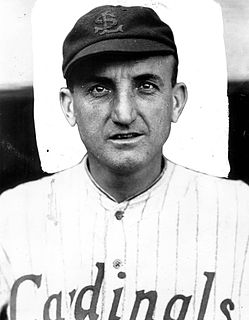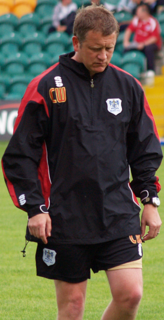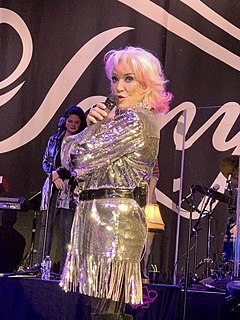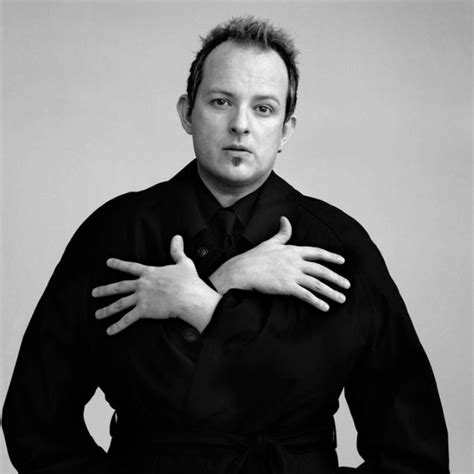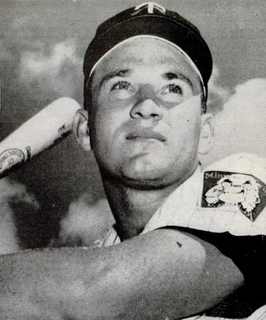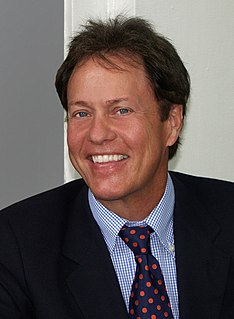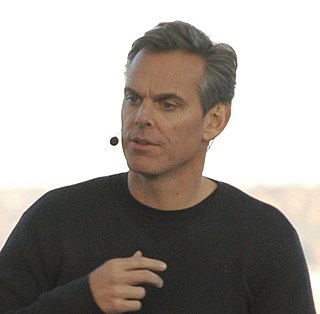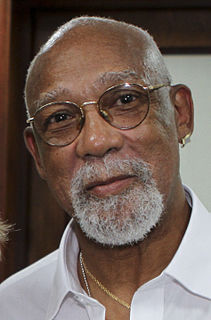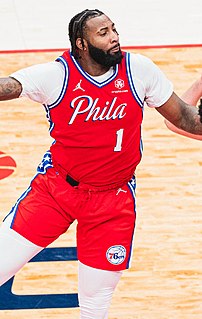A Quote by Bobby Wallace
I never had the slightest desire to be a major league manager, and all knew it. But Ban Johnson, Bob Hedges, and Jimmy McAleer persuaded me that the Browns were in a sort of a jam, and it was up to me, as an old standby, to do what I could.
Related Quotes
What I found fascinating was just how quickly the best of the young Negro League players were drafted into the major leagues once Branch Rickey broke the color line by hiring Jackie Robinson. It was clear that all of the major league owners already knew the talents of the black ballplayers that they had refused to let into their league.
The people at the label were great but at the end of the day our visions didn't match up and I knew I had to do it my way. The potential success that could come with signing with a major label didn't quite outweigh how important it was for me to make my music the way I knew it needed to be made. It was a hard decision to make, but I've never regretted it for a second and it's only become more clear to me after making and releasing Stairwells that it was the right one.
My dad was always my manager as far as I was concerned, even when I had another manager. At times he let me go with someone else who he thought could take me to another level when he couldn't, and he was right. But they were in it for another reason. He was in it because he wanted to see me succeed no matter what, and he made decisions based on being a dad as opposed to a manager.
I was at Caesar's Palace in Las Vegas, and I was performing at a show there. Jimmy Carter was going to be coming through with his Secret Service detail. The manager pulled me aside, and they didn't want me to shake Jimmy Carter's hand because they were afraid it would make the news if I stole from him.
My generation didn`t face the kind of urgent, pressing issues that my parents did, who fought through a war and a Depression and know what suffering is. That`s why Bob Dole had a tough time with this electorate. He was an old-fashioned curmudgeon who knew about sacrifice, and we didn`t know if we could live up to his standards. But we knew we could live up to Bill Clinton`s. He`s more like one of us.
I felt that I could swim for miles, out into the ocean: a desire for freedom, an impulse to move, tugged at me as though it were a thread fastened to my chest. It was an impulse I knew well, and I had learned that it was not the summons from a larger world I used to believe it to be. It was simply a desire to escape from what I had.
I remember one spring when I was doing the team's telecasts, Bob Allison was with me, and we were walking through the clubhouse in Orlando. This kid who was trying to make it with the Twins as an outfielder came up to me and asked who was that with me. I said that's Bob Allison, and you better hope you have as good a career as he had.
[Sport officials] blocked their support of us. But those individuals [ Muhammad Ali, the Jim Browns, the Bill Russells, Kareem Abdul Jabbar ] were old enough, they were wise enough, and they knew their history and this is why they came out in support of us, because they knew that we had our finger on the right move.
I think when I came into the league, I had to find something that would keep me around. I knew I wasn't going to get the ball a lot, being the younger guy on my team. I knew I wasn't going to play a lot unless I made some sort of impact on the floor. I wasn't the best shot blocker, so I said, 'Let's be the best rebounder the league has ever seen.'
